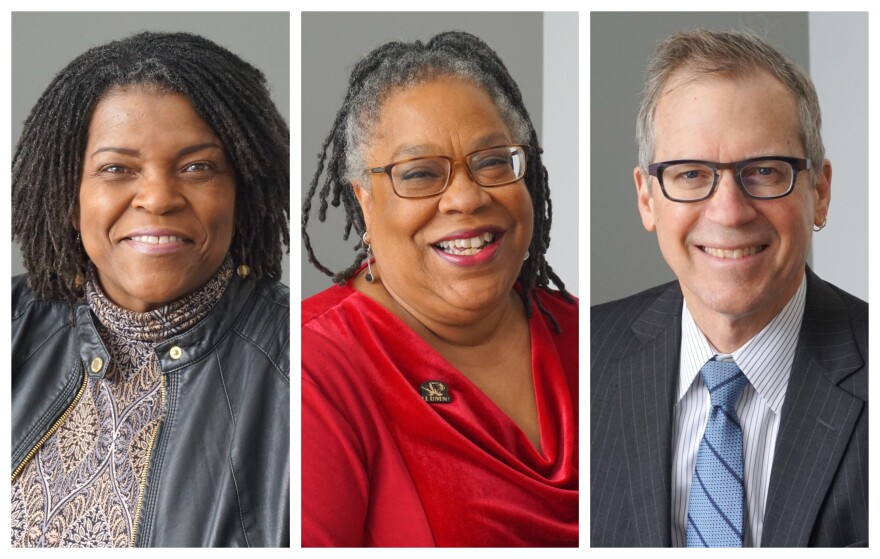Earlier this month, local TV news anchor Kevin Steincross mispronounced the name of Martin Luther King Jr. with what some considered to be a racial slur. Steincross apologized for the slip up and has since stepped away from the anchor desk in order to “regain trust” in the community, he said during his on-air apology.
On Thursday’s St. Louis on the Air, host Don Marsh talked with local media professionals about how the industry covers African-American communities – what has changed over the years and what's stayed the same. The discussion began with addressing Steincross’ mispronunciation.
Carol Daniel, KMOX news anchor and president of the Greater St. Louis Association of Black Journalists, or GSLABJ, said that she understands that slip ups happen but that the KTVI station mishandled the situation.
“We did listen as well as we could to what we believe was clean audio,” Daniel said. “We do not believe that it was a malicious utterance, we don't believe that he said it on purpose, we don't even believe he said the word clearly.
“We do believe the station mishandled the whole episode in its quick response, in its defense of him so quickly, and then said nothing else about it – which left a vacuum for people to fill in what they felt about it.”
She added that GSLABJ does not support an indefinite suspension of Steincross.
“As an association and as a broadcaster of 30-plus years, I do know that things are said incorrectly all the time [and] that people mispronounce words,” she said.
Also joining the conversation were Linda Lockhart, retired St. Louis Public Radio copy editor and engagement specialist, and Eric Rothenbuhler, professor and dean of Webster University’s School of Communications.
The guests noted that the recent controversy has led to broader discussions about how the media portrays minorities and the disparities visible within that representation.
“We want to try to have coverage change with the times … we live in a more diverse world; certainly issues of gay and lesbians have come to the forefront, in addition to people of color … So we want to have our communities reflect our newsrooms, reflect our communities. And that's where I think we still have the growth to do,” Lockhart said.
She added that more diversity “at the top of the food chain” can help foster more fair coverage. According to the American Society of News Editors, people of color compromised 22.6 percent of employees reported by all newsrooms in their survey in 2018, compared to 16.5 percent in 2017.
“At the end of the day,” Lockhart said, “it's still going to be those assigning editors who are making the calls on what gets on the air, what gets published, what gets printed, [and] looking for those little nuances in those stories [and] catch something before it gets on the air – whether a reporter may not have thought they were doing anything with a bias.”
Rothenbuhler added that educational institutions also have a responsibility to work in programs of inclusion.
“This world is growing more diverse all the time – and that is an asset, that's a resource, it’s not a tension or a source of anxiety – it's a resource and that's what we need, that's the attitude we need,” he said.
Webster’s fourth Diversity and Inclusion Conference will take place next month, where Rothenbuhler and his colleagues are partnering with GSLABJ to host a high school journalism workshop, among other things.
“We try to engage our community, and we nurture in our own students the attitude [of] what's different, what's unfamiliar, is interesting and important – and that they should be attracted to diverse communities and that it's a resource for them,” Rothenbuhler added.
St. Louis on the Air brings you the stories of St. Louis and the people who live, work and create in our region. St. Louis on the Air host Don Marsh and producers Alex Heuer, Evie Hemphill and Lara Hamdan give you the information you need to make informed decisions and stay in touch with our diverse and vibrant St. Louis region.



